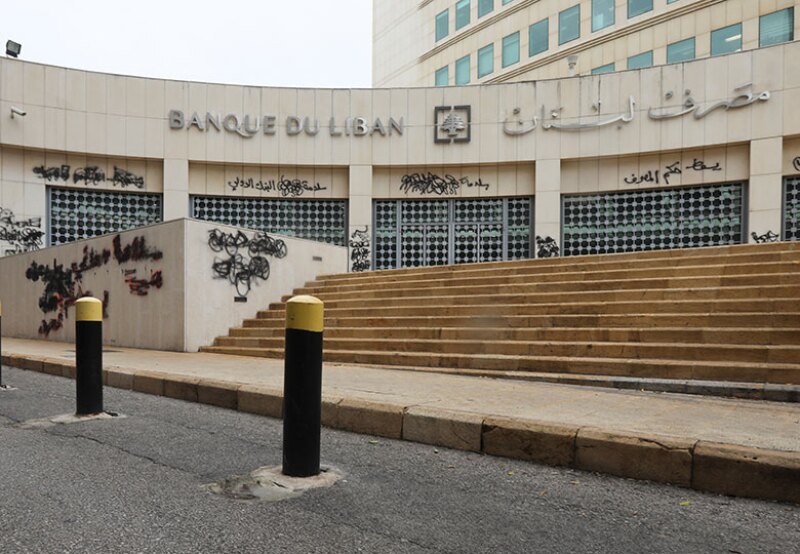
Lebanon's central bank
Fears are mounting over the viability of Lebanon’s banking sector, which is over-exposed to state bonds, as the government begins what will likely be a drawn-out restructuring of its debt.
Legislation requiring large depositors to enter into a deposit to share-swap is the only way to prevent bankruptcy, a senior Lebanese banker tells Euromoney.
For years, Lebanese banks have served as a conduit for state funding, funnelling deposits back to the central bank Banque du Liban, which has, in turn, lent money to the government.
Now, FX reserves are running out and debt-to-GDP is unsustainable at 152%, according to the IMF.
After months of speculation and just days before the due date of March 9, Lebanon’s government said it would not repay the $1.2 billion Eurobond repayment, although details of the restructuring process have so far been scant and will likely be delayed by the onset of the coronavirus Covid-19.
There are 10 different ways to skin a cat, but a haircut in whatever form is unavoidable - Lebanese banker
Lebanese banks, which hold some 50% of Lebanon’s Eurobonds, could well be decimated by the process and stand to lose on aggregate between $20 billion and $40 billion, depending on the recovery value of the bonds in a restructuring.
